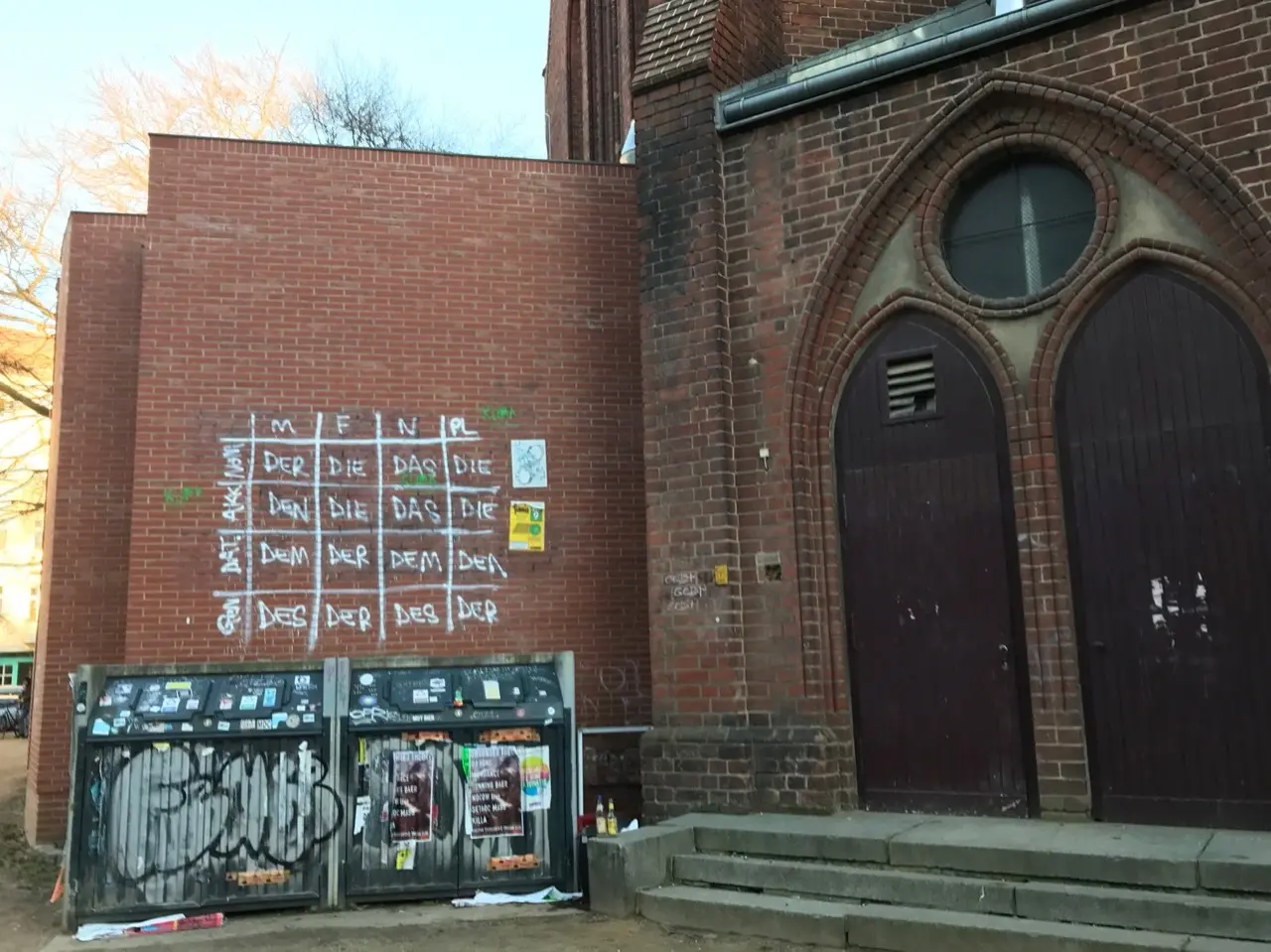this post was submitted on 31 Aug 2023
233 points (97.9% liked)
Europe
8324 readers
1 users here now
News/Interesting Stories/Beautiful Pictures from Europe 🇪🇺
(Current banner: Thunder mountain, Germany, 🇩🇪 ) Feel free to post submissions for banner pictures
Rules
(This list is obviously incomplete, but it will get expanded when necessary)
- Be nice to each other (e.g. No direct insults against each other);
- No racism, antisemitism, dehumanisation of minorities or glorification of National Socialism allowed;
- No posts linking to mis-information funded by foreign states or billionaires.
Also check out [email protected]
founded 2 years ago
MODERATORS
you are viewing a single comment's thread
view the rest of the comments
view the rest of the comments

To be honest, I have no idea how anyone can memorise that. As a native speaker you hardly ever really think about it, you just know. But looking at the table it just seems like complete chaos, even to me.
Use it in a 1000 sentences each.
I barely speak German, but I do speak Polish where there are 7 cases, and it's just "how things are". Sometimes you stop to think about why, and it feels kind of surprising.
Then, I also speak¹ Basque, which has 17 cases... let me illustrate:
...that's the easy part, before verb conjugation:
(non-exhaustive table for just the regular helper verbs)
¹ "speak" as in only having to look up the conjugation tables from time to time.
It really is. Once we got past nominative and accusative in school (which were hard enough coming from English which has no gender), and suddenly this chart was busted out, I realized German was always going to be a guessing game for me. I can only hope the meaning is clear enough with completely wrong genders and word endings. I find I do better hearing whole phrases repeatedly than learning word by word, but seeing this helps with knowing why a phrase is worded a certain way.